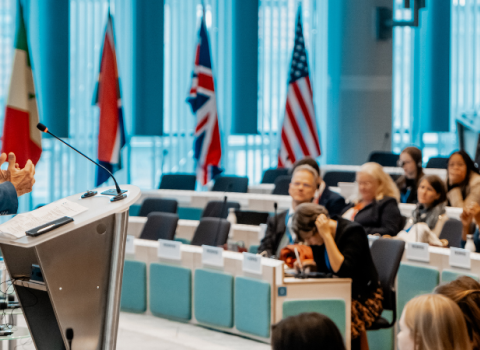
Indian entrepreneur Swati Piramal
But for Swati, a trained medical doctor from Bombay University, textiles held little charm. Her passion lay in healthcare but it took a lot of ingenuity and perseverance to convince the family to foray into health and pharmaceutical. “It was quite a difficult task to convince a century-old family business that they must do healthcare,” she reminisces.
It all started when Swati and husband Ajay Piramal bought Nicholas Laboratories in 1988 for $4 million. A series of strategic acquisitions and new product innovations turned Nicholas Piramal India into one of the leading life sciences and pharmaceutical companies in India with over $350 million turnover today.
Related article
She laughs when you ask her if she faced any “make or break” situation in her career [probably because it’s her own business and not a job] but is quick to add that there are always plenty of obstacles. “It was never ‘make it or break’ it but I face difficult situations quite often,” she says. “When we bought Boehringer Mannheim India in 1993, just before the deal was finalised there was an accident in the plant and some workers died. We were almost thrown out of the local Food and Drugs Administration office. I was despondent but gradually we could make our case clear that we were not at fault,” she says.
The lone woman member in the scientific advisory board of India’s prime minister, she is trying to send diverse messages across. “The change is amazing. More women are coming in science and are getting visibility, specially in biological sciences to which they are naturally inclined, but conscious effort needs to be made to get more women in science and business,” she says.
One problem area is human resource management, where some practices can be less favorable for women than men. Swati has been open about how most organisations favor informal recruitment and selection processes, where recruiters tend to determine job requirements according to the current jobholder’s gender. “When these jobs are perceived as being held more often by one particular sex or the other, applicants of that sex are preferred, for example in mathematics or engineering. This sort process leads to stereotyping of men and women’s jobs,” she says.
Similarly, access to high profile development (such as conferences abroad or on-the-job opportunities, or work on high-profile projects) is often gained through informal networks and mentors. Research shows that women tend to lack access to informal networks that provide such opportunities, she argues. But Swati is quick to add, “Women who reach senior levels often recognize these barriers and develop strategies to overcome them.”
Swati’s serene exterior seems to be in perfect sync with her business philosophy. Her advice to the younger women aspiring to enter the business of science: “One has to go through the four steps of learning, tribulations, transformation and success.”





 A unique international forum for public research organisations and companies to connect their external engagement with strategic interests around their R&D system.
A unique international forum for public research organisations and companies to connect their external engagement with strategic interests around their R&D system.